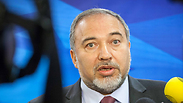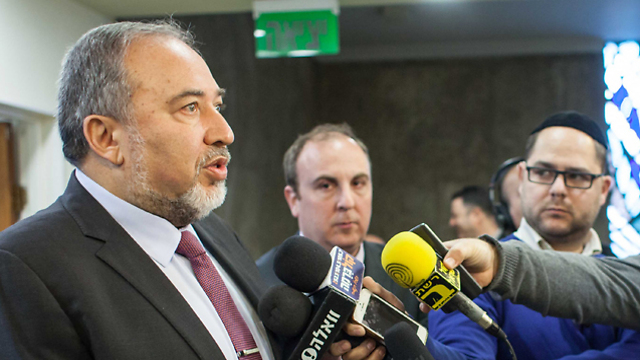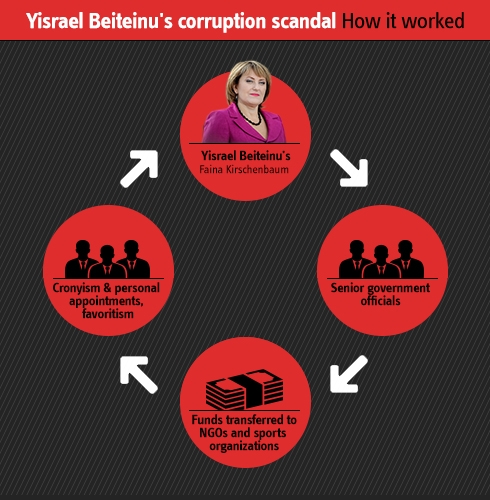
Lieberman fumes at police amid graft scandal, cries foul after Netanyahu probe postponed
'While trial involving Netanyahu has been moved because of elections, investigation into our party has been put on fast track,' Yisrael Beiteinu chairman says in attempt to depict corruption investigation as political.
Yisrael Beiteinu Chairman Avigdor Lieberman continued to blast the police for the timing of a massive corruption scandal centering around his Yisrael Beiteinu party, portraying it as an attempt to harm the party in the upcoming elections.
"This is a well planned and well timed move, the investigation fits perfectly with the election's schedule," Lieberman said, demanding an explanation from State Prosecutor Shay Nitzan. Lieberman made the comments at the beginning of the government's weekly meeting.
"From what we have seen it is safe to assume that there will be additional leaks and coinciding arrests… this raises a lot of questions… but until the end of the election, until the last day, there will be investigations and leaks," the foreign minister said.
Related stories:
- Lieberman: 'Mysterious forces' trying to hurt us ahead of elections
- Massive scope of Yisrael Beiteinu corruption scandal revealed
- Lieberman's Yisrael Beiteinu at heart of major corruption scandal
Earlier Sunday, the State Prosecuter asked that a triail involving a disgruntled former employee of the official Prime Minister's Residence be postponed until after the election.
Lieberman referenced the request, claiming it shows that the intensity of the investigation is politically motivated.
"Very strange that in the issue of Yisrael Beiteinu there is an urgency to fast track the investigation and even expand it… (while in the Netanyahu related request by the State Prosecution) it was claimed that there was a need to prevent politics from interfering in due process," Lieberman said.
Numerous senior figures from government ministries and local councils are suspected of taking part in bribery, fraud, and breach of trust by funneling money to various organizations and foundations. Faina Kirschenbaum, deputy to the interior minister and the general secretary of Yisrael Beiteinu, is suspected of accepting funds, and is at the heart of the scandal.
The modus operandi of the alleged scheme was said to be as follows: A certain organization received a budget plus a bonus amount, with the understanding that the extra funds would either be returned to those pulling the strings or paid as compensation for appointing associates to certain positions. Numerous organizations came to understand that they had to provide kickbacks in exchange for a budget.
Kirschenbaum is suspected of receiving hundreds of thousands of shekels in kickbacks. In contrast to the other suspects, her conversations were not secretly recorded because of her official government position, but there was surveillance of her activities.
Kirschenbaum is a high-profile member of Yisrael Beiteinu and a close associate of Lieberman. The bulk of the party's activities go through her, and she is involved in all its parliamentary and political moves.
Former minister of tourism Stas Misezhnikov is also suspected of accepting bribes, facilitating bribes, and cronyism.
David Godovsky, Yisrael Beiteinu's chief of staff, is suspected of bribery, facilitating bribes, conspiracy to commit a crime, fraudulently obtaining benefits under aggravated circumstances, and other charges.
Godovsky was treasurer of a foundation that aided new immigrants when Lieberman, who chaired the foundation, was investigated in 1997 for allegedly borrowing NIS 111,155 from its coffers, most of which he did not return. The police then raided Godovsky's house, but most of the foundation's financial documents were not found.
Eli Senyor, Gilad Moreg, Michal Margalit, Ahiya Raved, Moran Azulay, Ilana Koriel, and Noam (Dabul) Dvir contributed to this report.

















